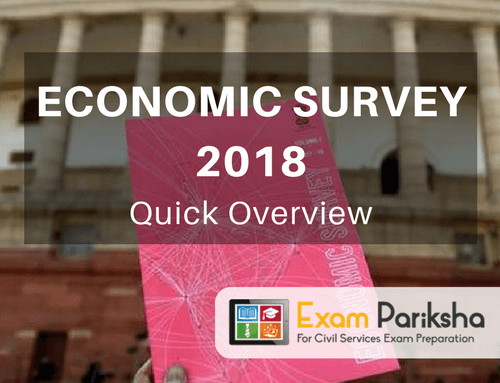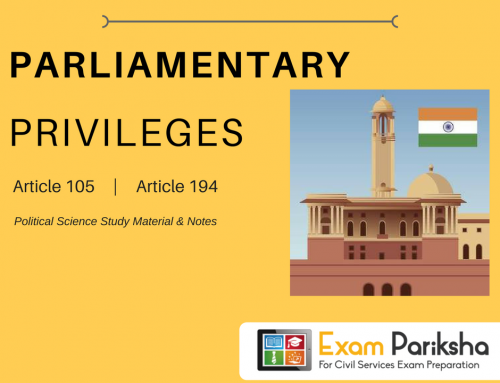It is mentioned under the Article 280 of the Constitution, that the President shall constitute a Finance Commission every five years consisting of a chairman and four other members.
The President appoints the Commission members based on the qualifications set by the Parliament for the appointment of members and the Chairman of the Finance Commission
Composition of the Finance Commission:
The Parliament has enacted the Finance Commission Act,1951 which specifies the qualifications required for the Chairman and the members of the Commission. These criteria for eligibility for appointment are: The Chairman shall be a person having public affairs experience. The members should be selected from amongst the following-
- A High Court judge or a person qualified for appointment as a High court judge.
- A person with specialized knowledge of finance and accounts.
- A person with wide experience of financial matters and administration in the Government.
- A person having special knowledge of field of Economics.
Every member remains in the office till the pleasure of the President of India. The members are eligible for re-election.
The fourteenth Finance Commission has the following appointees:
- Chairman : Dr. Y.V.Reddy (He was formerly the Governor of Reserve bank of India)
- Members: Prof Abhijit sen, Ms Sushman Nath, Dr. M.Govinda Rao, and Dr. Sudipto Mundle.
The Finance Commission can be constituted at such an earlier time as the President considers necessary.
<< Click here to read about recommendations of 14th Finance Commission>>
Functions of the Finance Commission:
The Finance Commission is a quasi-judicial body. But primarily, the Finance Commission makes recommendations to the President on the following matters (these are mentioned in the Article 280):
- The distribution of net proceeds of taxes that are to be shared between the Centre and the States based upon their respective contributions of the taxes.
- To determine the principles which should govern the Grants-in-Aid to the States by Central government.
- To recommend the measures required to augment the Consolidated Fund of a State in order to supplement the resource of the Panchayats & Municipalities in the States based on the recommendations of the State Finance Commission in this regard. (This function has been added in the 73rd and 74th Constitutional Amendment Act, 1992.)
- Additionally, any matter referred to the Commission by the President.
After fulfilling the mandated role, the Commission submits its report to the President. Thereafter, President lays the report before the Parliament’s both houses. He also presents an explanatory memorandum featuring the actions taken on the recommendations of the Commission.
Here it must be noted that, the recommendations made by the Finance Commission are merely advisory in nature and therefore, not binding on the Government. This advisory nature of recommendations was envisioned to keep the Fiscal Federalism in India balanced.
The Finance Commission is supposed to review the state of finances of the Union & States, and thereafter suggest a plan for the governments, for collectively bringing about restructuring of the public finances while restoring budgetary balance, for achieving the macro-economic stability and the debt reduction along with equitable growth.
The Commission shall also indicate the basis of arriving at its findings and therefore have to make available the State-wise estimates of receipts and expenditure.
Powers of the Finance Commission:
- The Finance Commission is considered a quasi-judicial body because it has powers of the civil court according to the Court of Civil Procedure.
- The Commission can summon and enforce the attendence of any witness
- It can ask any person to share information or produce a document, which it deems relevant for carrying out its work.
- The Commission can ask for any public record or document from any court or office in the country.
Previous Finance Commission:
| Finance Commission | Year of Appointment | Chairman | Period of Report Implementation |
|---|---|---|---|
| First | 1951 | K. C. Neogy | 1952–57 |
| Second | 1956 | K. Santhanam | 1957–62 |
| Third | 1960 | A. K. Chanda | 1962–66 |
| Fourth | 1964 | P. V. Rajamannar | 1966–69 |
| Fifth | 1968 | Mahavir Tyagi | 1969–74 |
| Sixth | 1972 | K. Brahmananda Reddy | 1974–79 |
| Seventh | 1977 | J. M. Shelat | 1979–84 |
| Eighth | 1983 | Y. B. Chavan | 1984–89 |
| Ninth | 1987 | N. K. P. Salve | 1989–95 |
| Tenth | 1992 | K. C. Pant | 1995–2000 |
| Eleventh | 1998 | A.M.Khusro | 2000–2005 |
| Twelfth | 2003 | C. Rangarajan | 2005–2010 |
| Thirteenth | 2007 | Dr. Vijay L. Kelkar | 2010–2015 |
| Fourteenth | 2013 | Dr. Y. V Reddy | 2015–2020 |
<< Read about the role and functions of SEBI here >>





